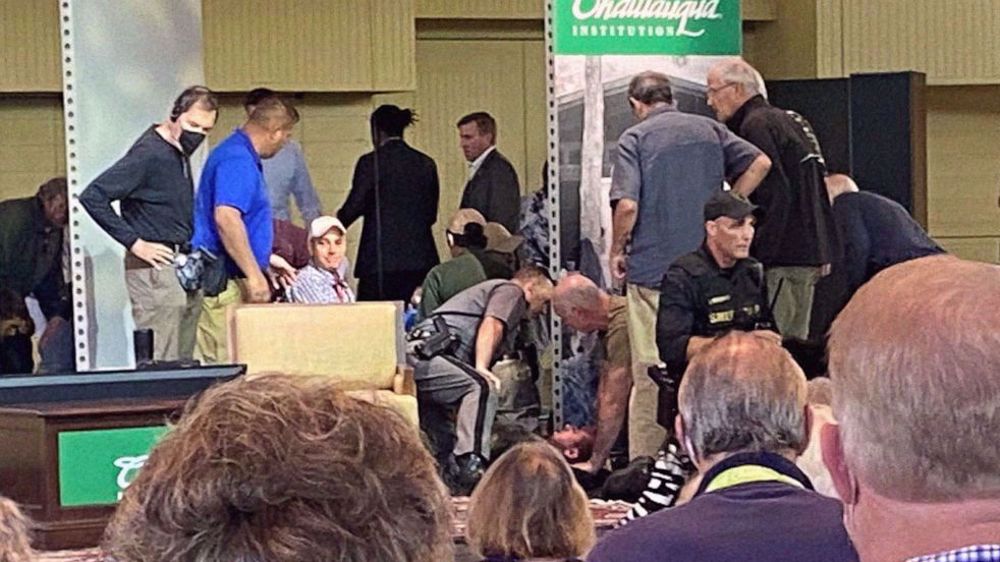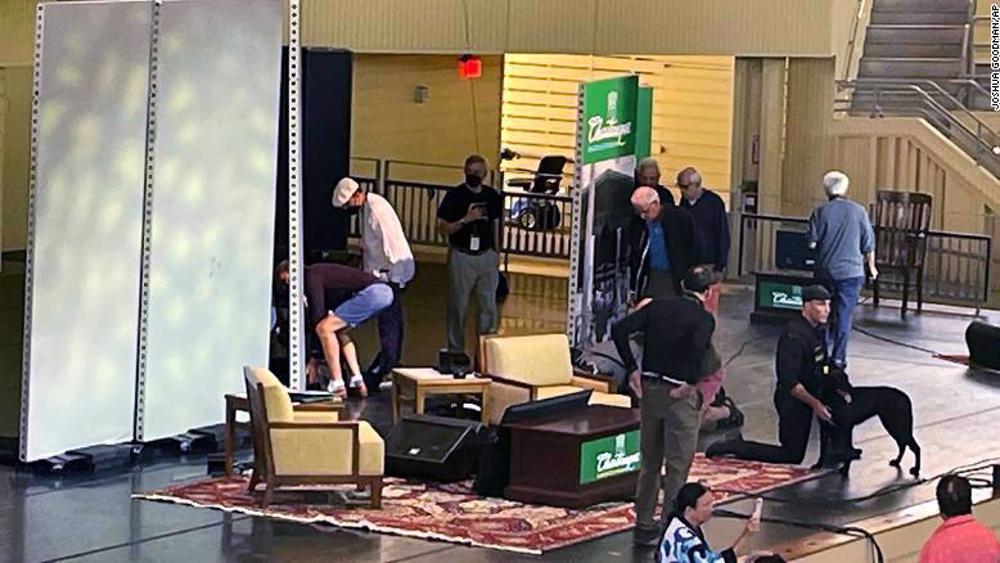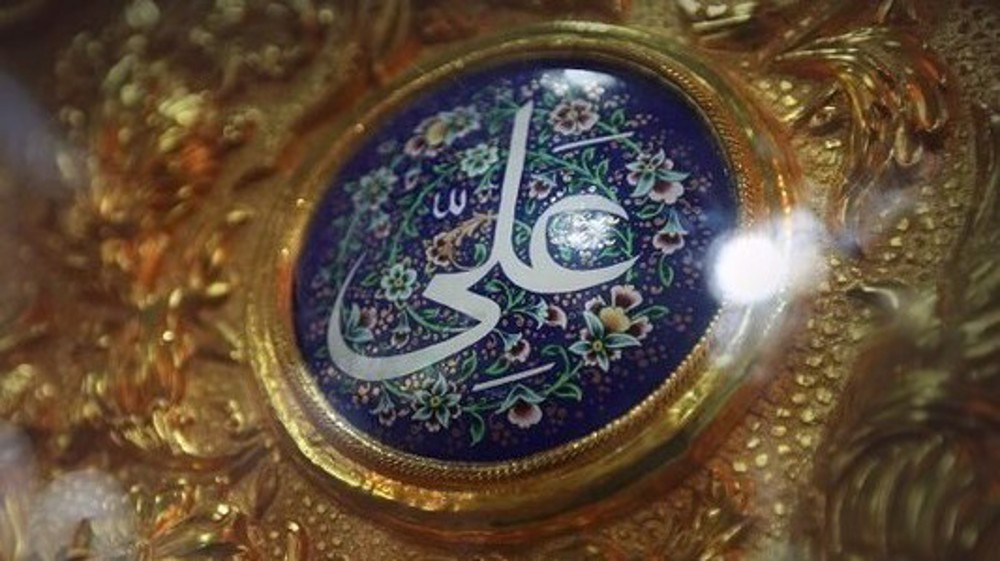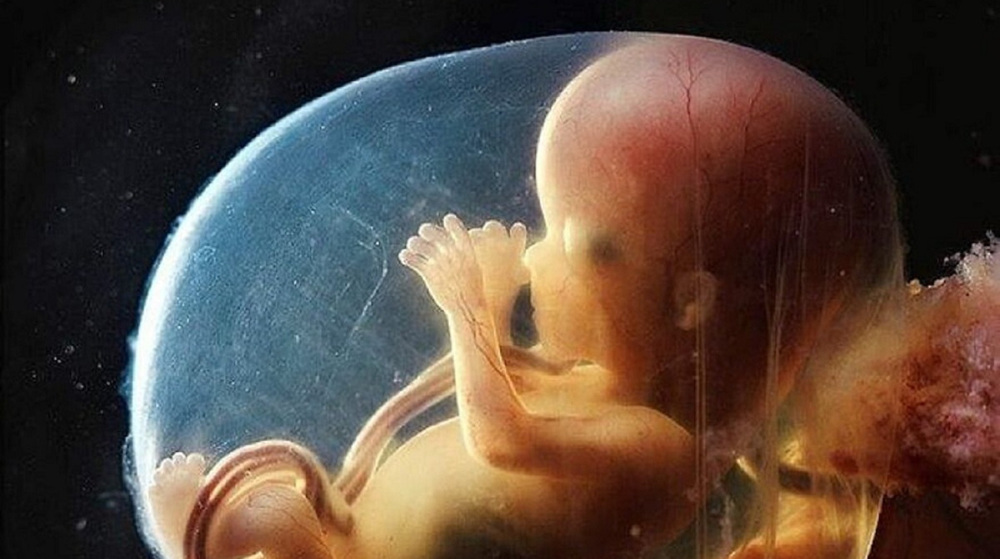Agent: Salman Rushdie ‘lost sight in one eye’ after stabbing, ‘hand incapacitated’
Salman Rushdie, the author of a sacrilegious anti-Islam book who has been in hospital for the past two months over serious stabbing injuries, has lost sight in one eye and will never again be able to move one of his hands.
Andrew Wylie, one of Rushdie’s agents, made the announcement on Sunday as he described the extent of the 75-year-old’s injuries in the attack on August 12 in an interview with Spanish newspaper El Pais.
“His wounds were profound, but he’s also lost the sight of one eye,” Wylie said, adding, "He had three serious wounds in his neck. One hand is incapacitated because the nerves in his arm were cut. And he has about 15 more wounds in his chest and torso."
For security reasons, Wylie declined to tell the newspaper whether Rushdie is still at hospital or has already been discharged.
The British-American author was stabbed by a 24-year-old New Jersey man, who injured the writer in the neck and torso just before he was to give a lecture at Chautauqua Institution, a retreat about 19 kilometers from Lake Erie.
Wylie said at the time that the author was rushed to hospital after sustaining severe injuries in the attack, including nerve damage in his arm, wounds to his liver, and the likely loss of an eye.
Hadi Matar, the man accused of attacking the anti-Islam writer, has pleaded not guilty to second-degree attempted murder and assault charges. He is being held without bail in a western New York jail.
Rushdie is the author of The Satanic Verses, a blasphemous novel about Islam published in 1988 which sparked Muslims’ outrage across the globe.
Rushdie went into hiding in 1989 under a British government protection program, which included a round-the-clock armed guard. He re-emerged after nine years of seclusion and cautiously resumed more public appearances in a publicity campaign against what he labeled as “religious extremism overall.”
Despite his anti-Islam campaigns, Rushdie was knighted by the British Queen Elizabeth II in 2008 and earlier this year was made a member of the so-called Order of the Companions of Honor, a royal accolade purportedly for people who have made a major contribution to the arts, science or public life.
Biden administration ‘quietly’ circumnavigating own ban on TikTok: Report
Iran Navy takes delivery of first advanced ‘signals-intelligence’ destroyer
Italian TV exposes Israeli manipulation of EU institutions
UK anti-corruption minister Siddiq resigns over links to Bangladesh ‘embezzlement probe’
VIDEO | Indian-administered Kashmir honors Imam Ali’s legacy of justice, leadership
Israel kills female Palestinian journalist based in Gaza’s Indonesian Hospital
US lawmakers demand answers from Biden on Israeli killing of Turkish-American activist
Araghchi: Iran never left negotiation table as its nuclear program ‘peaceful’











 This makes it easy to access the Press TV website
This makes it easy to access the Press TV website